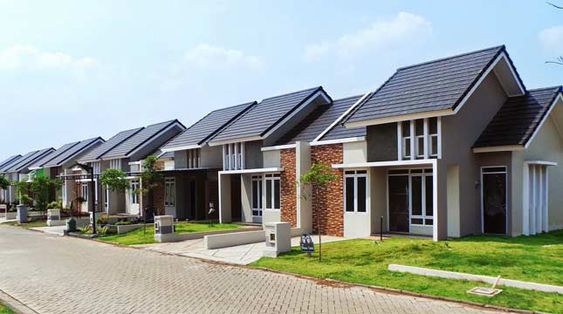Jakarta, Indonesia Sentinel — PT Bank Tabungan Negara (Persero) Tbk (BTN), one of Indonesia’s largest mortgage lenders, has reported a significant rise in home loan applications from women, marking a new trend in the country’s real estate market. In addition to the surge in female applications, there has also been a notable increase in mortgage uptake among millennials.
BTN’s President Director, Nixon LP Napitupulu, highlighted this shift during a developer event at Menara BTN in Jakarta on Friday (November 8). “We are observing a growing trend of women taking out mortgages. This is a new phenomenon,” Nixon stated, as reported by Antara.
Since its founding 74 years ago, BTN has facilitated over 5.5 million mortgage agreements, disbursing a total of Rp461 trillion (around $30 billion) across both subsidized and non-subsidized housing, as well as conventional and sharia-compliant mortgage products.
Nixon revealed that women now make up a significant portion of BTN’s mortgage customers, accounting for 32.5% of total mortgage disbursements from 2020 to 2024. During this period, female buyers financed 173,476 housing units, amounting to Rp25 trillion (approximately $1.6 billion).
“In the past, women often relied on their future husbands to purchase a home. Now, many are taking the initiative to buy their own homes. This is a sign of progress,” Nixon remarked.
Millennials Leading the Way in Housing Market
The bank also reported that millennials dominate Indonesia’s housing market, with 76.7% of all mortgages issued by BTN going to this demographic. The remaining 23.3% are taken up by older generations. The data indicates that homeownership is becoming an important part of the future economic landscape in Indonesia.
In terms of employment categories, 90.3% of BTN’s mortgage approvals come from formal sector employees, with the informal sector making up the balance.
The informal sector is approximately 9.74% contributing to Rp18 trillion (about $1.2 billion) in mortgage loans. Nixon said BTN continues to strive for this sector to be faster than the formal sector. “We are continuously striving to improve accessibility in this sector, especially for the informal workforce, to ensure faster growth compared to the formal sector,” Nixon added.
Addressing Indonesia’s Housing Shortfall
The Indonesian government has ambitious goals to stimulate economic growth to at least 8% and eradicate extreme poverty, aiming for a 0% poverty rate. A key part of this strategy is the “3 Million Homes” initiative, which targets building 2 million homes in rural areas and 1 million in urban centers.
Due to Safety Issues, Dua Lipa Concert in Jakarta Cancelled Less Than 24 Hours Before Show
Despite these efforts, Nixon acknowledged that Indonesia still faces a significant housing backlog, with 9.9 million families lacking homeownership and more than 50% of low-income households living in substandard housing. Data from the national electricity company, PLN, indicates there are as many as 24 million homes deemed unfit for habitation.
Challenges in Housing Policy and Development
BTN’s studies have identified several challenges in the housing sector, particularly in regional areas. On the demand side, issues include a lack of accurate housing data collection using a “by name, by address” system, and overlapping regulations that complicate housing provisions for low-income communities. On the supply side, the bank noted a lack of synchronization between local and central government spatial planning.
To address these issues, BTN is actively providing recommendations to the government for long-term solutions to the nation’s housing challenges. Nixon emphasized that the housing sector’s growth has a significant multiplier effect, benefiting 185 related sub-sectors, most of which are labor-intensive.
The rising trend of mortgage uptake from women and millennials in Indonesia’s housing market signals a shift toward greater financial independence and changing consumer behavior, with significant implications for the country’s economic development.
As BTN continues to support these emerging demographics, the bank remains committed to collaborating with the government to overcome existing housing challenges and drive sustainable growth in the real estate sector, ultimately contributing to Indonesia’s broader economic and social goals.
(Raidi/Agung)


























